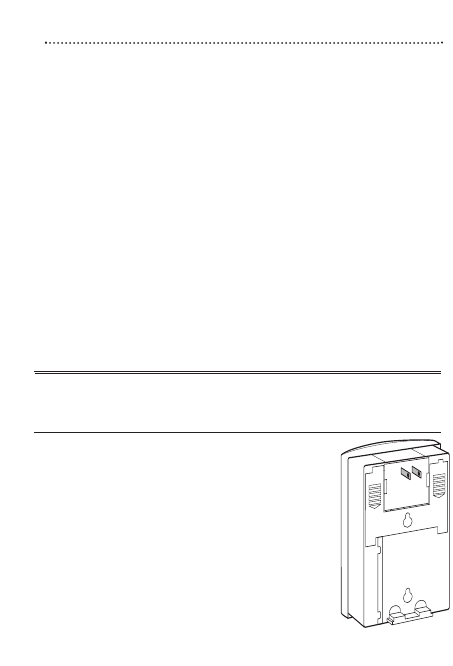
Installation
Avoid the following:
• Excessive spillage or reverse venting of fuel burning
appliances caused by outdoor ambient conditions, such as:
1) Wind direction and/or velocity, including high gusts
of wind. Heavy air in the vent pipes (cold/humid air with
extended periods between cycles).
2) Negative pressure differential resulting from the use of exhaust fans.
3) Simultaneous operation of several fuel burning appliances competing for
limited internal air.
4) Vent pipe connections vibrating loose from clothes dryers, furnaces or
water heaters.
5) Obstructions in or unconventional vent pipe designs which can amplify
the above situations.
• Extended operation of unvented fuel burning devices (range, oven, fire-
place, etc.).
• Temperature inversions which can trap exhaust gasses near the ground.
• Car idling in an open or closed attached garage, or near a home.
How to Install Your Alarm
Your Bryant CO alarm with its removable adapter allows you to install the
alarm as a wall mounted unit, a direct plug unit, or as a table top unit.
Direct Plug Alarm
First, refer to “Where to Install Your CO Alarm” on
page 8 for general guidelines as to where to locate
your CO alarm.
In its “as shipped” configuration, your Bryant CO
alarm is ready to be plugged directly into a wall
socket.
To install:
1. Choose a standard 120V unswitched outlet to
plug the alarm into.
2. Pull slide support out approximately 1/4” until
slide snaps in place (this will help support unit in wall
outlet).
3. Plug the alarm into the outlet.
Back of unit when
used as direct plug
10


















